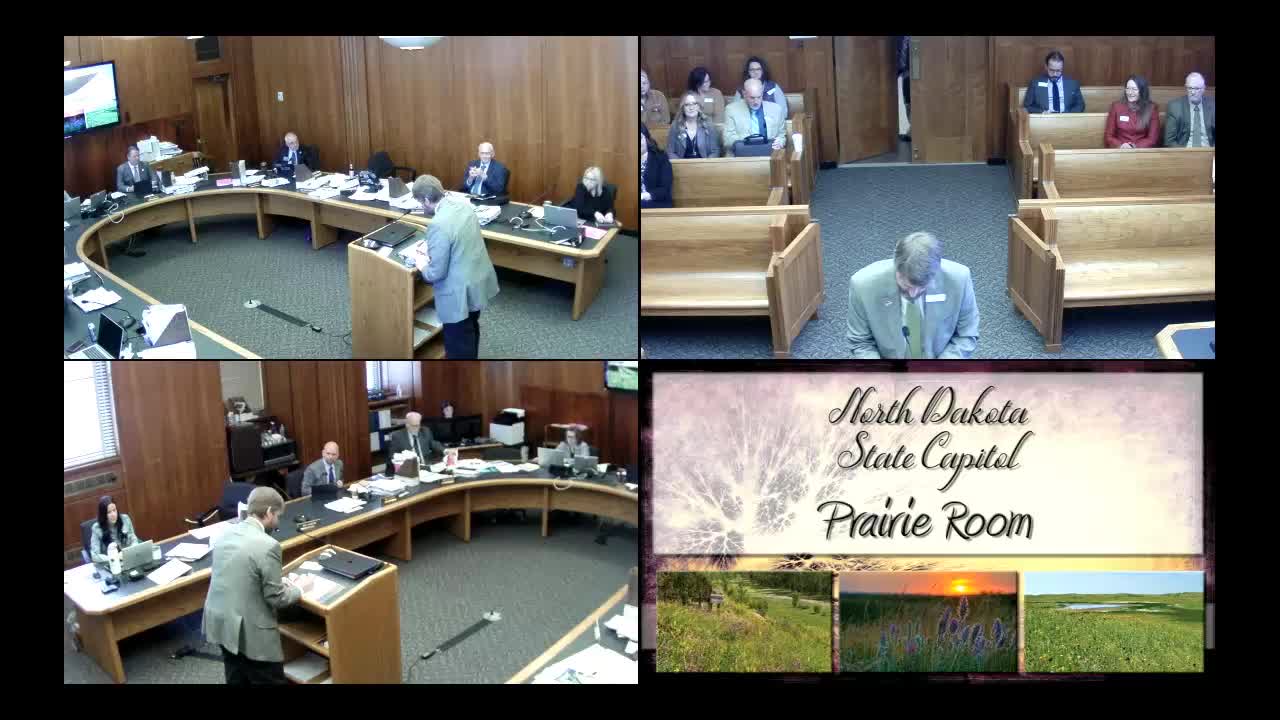Minot State presses for downtown Health Sciences Institute; state funding not included in Senate bill
Get AI-powered insights, summaries, and transcripts
Subscribe
Summary
Minot State University and Dakota College at Bottineau requested state funding to buy and outfit Trinity Health’s downtown Minot facility as a regional Health Sciences Institute. Trustees ranked the project highly, but the Senate did not include funding; university and hospital leaders described workforce needs and potential program plans.
Minot State University and Dakota College at Bottineau on the committee’s agenda described a proposal to purchase and outfit Trinity Health’s Health Center West in downtown Minot to create a Health Sciences Institute aimed at expanding regional healthcare training.
Steve Shirley, president of Minot State University, told the committee the campus pair has a record providing nursing and allied‑health programming in downtown Minot and wants to expand offerings including surgical technician, sonography, respiratory therapy technician, dental hygiene and assorted certificates. Shirley said the State Board of Higher Education ranked the proposal among top priorities for new capital projects and emphasized the cost advantage: the Trinity Health West building purchase and fit‑out was estimated at $12.3 million for about 39,000 square feet (approximately $315 per square foot), “well less than half” the per‑square‑foot cost of new construction proposals the system had reviewed.
John Kutch, president and CEO of Trinity Health in Minot, said the hospital system and a coalition of regional critical‑access hospitals endorsed the project and argued the institute would strengthen the workforce pipeline for northwest North Dakota. “If you were to present me with 200 qualified nurses, I would hire 100% of them,” Kutch told the committee, explaining current staffing shortages and the demand for clinical hires.
Dakota College at Bottineau Campus Dean Carmen Symone described recent program expansions already delivered downtown: dental assisting began last fall and the college has received national accreditation approval to offer dental hygiene this fall. Symone said the space Minot State and DCB are using already allowed the college to double the number of nursing seats it can serve.
Committee members asked implementation questions — timeline, equipment and program capacity. Shirley and Trinity representatives estimated 12–24 months to be operational, with many fit‑out tasks and equipment lead times to schedule. Committee members discussed the project’s place in the capital request process; Minot State said the State Board prioritized the initiative but the Senate did not include funding in its bill. The campus sought $12.35 million in state funds (with a 5% local match) and requested authority to pursue $3 million in private fundraising if the legislature permitted fundraising authority.
Why it matters: University and hospital leaders presented the project as a cost‑effective, near‑turnkey way to expand clinical simulation and allied‑health training in a high‑visibility downtown site; proponents said it would directly address a regional shortage of nurses and allied‑health workers and supply qualified candidates to local and regional hospitals.
Next steps: The committee heard the testimony but did not vote on a funding measure; Minot State and local partners said they will continue outreach with lawmakers and pursue fundraising and intergovernmental support.
